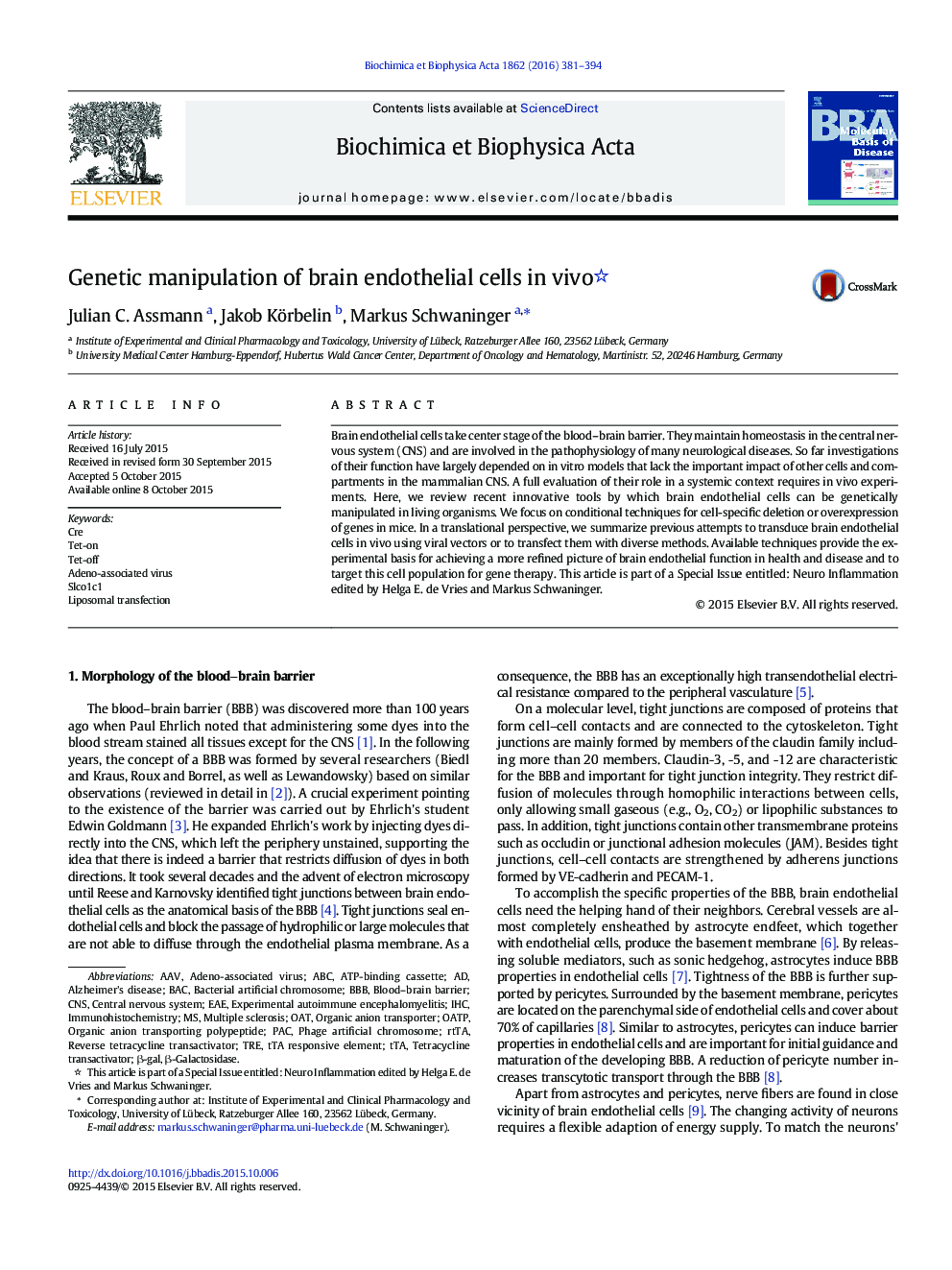| Article ID | Journal | Published Year | Pages | File Type |
|---|---|---|---|---|
| 1904524 | Biochimica et Biophysica Acta (BBA) - Molecular Basis of Disease | 2016 | 14 Pages |
Abstract
Brain endothelial cells take center stage of the blood-brain barrier. They maintain homeostasis in the central nervous system (CNS) and are involved in the pathophysiology of many neurological diseases. So far investigations of their function have largely depended on in vitro models that lack the important impact of other cells and compartments in the mammalian CNS. A full evaluation of their role in a systemic context requires in vivo experiments. Here, we review recent innovative tools by which brain endothelial cells can be genetically manipulated in living organisms. We focus on conditional techniques for cell-specific deletion or overexpression of genes in mice. In a translational perspective, we summarize previous attempts to transduce brain endothelial cells in vivo using viral vectors or to transfect them with diverse methods. Available techniques provide the experimental basis for achieving a more refined picture of brain endothelial function in health and disease and to target this cell population for gene therapy. This article is part of a Special Issue entitled: Neuro Inflammation edited by Helga E. de Vries and Markus Schwaninger.
Keywords
OATPAAVEAEABCβ-galTet-OnrtTATTAPACCREBACTet-Offexperimental autoimmune encephalomyelitisIHCImmunohistochemistryβ-galactosidaseAlzheimer's diseaseTetracycline transactivatorReverse tetracycline transactivatorOatorganic anion transporterCNSBlood–brain barrierBBBTREcentral nervous systemMultiple sclerosisAdeno-associated virusOrganic anion transporting polypeptidebacterial artificial chromosomeATP-binding cassette
Related Topics
Life Sciences
Biochemistry, Genetics and Molecular Biology
Ageing
Authors
Julian C. Assmann, Jakob Körbelin, Markus Schwaninger,
